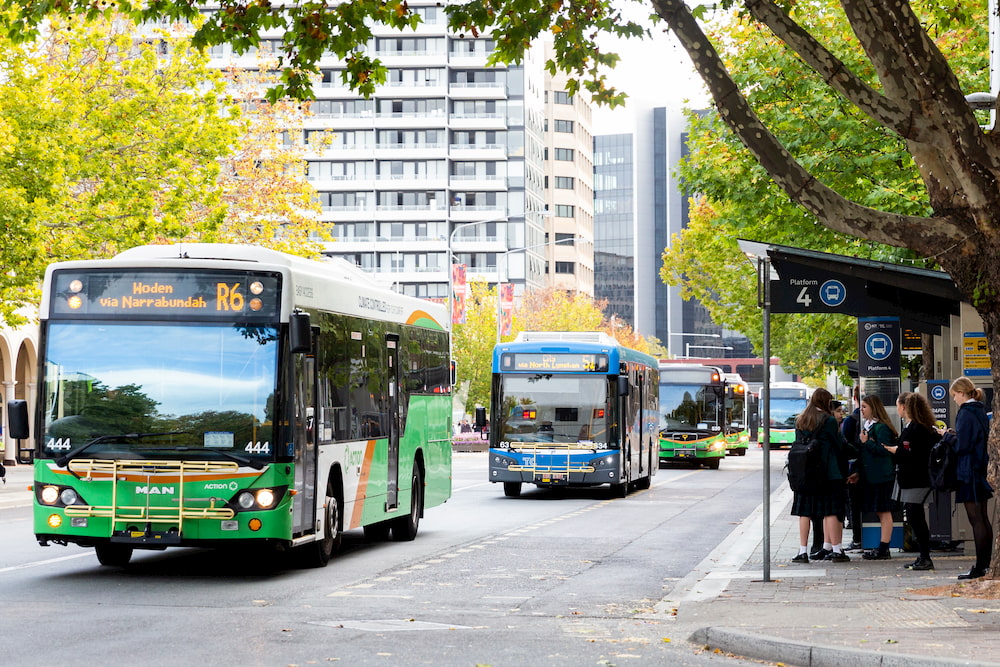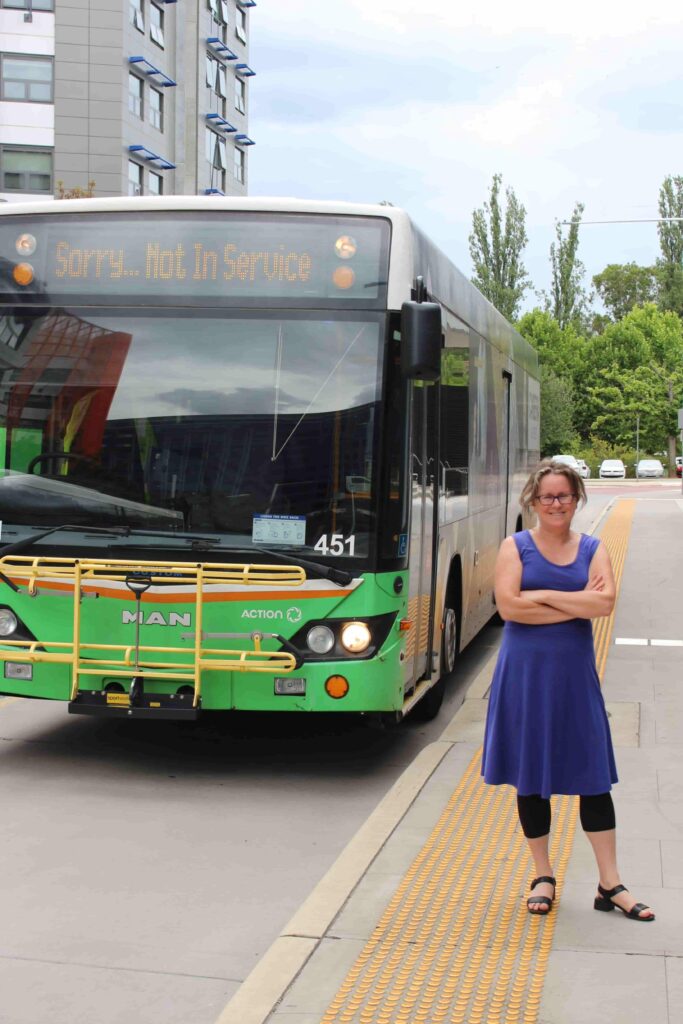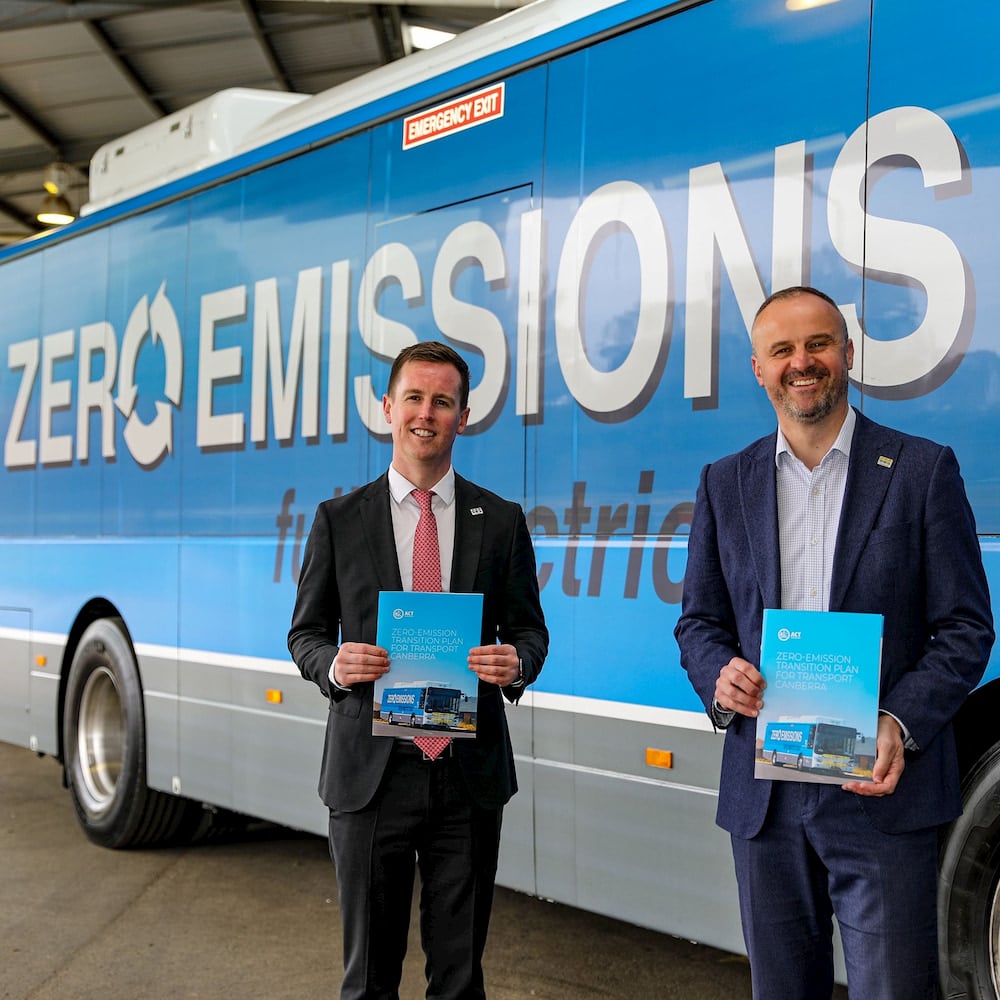By 2024, the ACT Government hopes that every bus on Canberra’s roads will be electric. This week, the government began a market sounding to purchase 90 electric buses and their associated operating requirements (charging infrastructure, maintenance, and energy supply) next year.
“The ACT Government wants to hear from everyone who would like to be involved in delivering the zero-emissions transition – from bus manufacturers, energy providers, and electric bus charging station companies to the broader construction industry,” Chris Steel, Minister for Transport and City Services, said.
The government intends to replace every diesel and compressed natural gas bus in Transport Canberra’s fleet with modern, zero-emission buses, Mr Steel said – “clean, quiet, and reliable”. This first tranche of 90 buses will fulfil an ACT Labor election commitment.
Transport is the ACT’s largest source of greenhouse gas emissions, accounting for 57% of total emissions in 2019–20.
The Zero-Emission Transition Plan for Transport Canberra, released in September, sets out the government’s plans for a zero-emission public transport system by 2040.
Under the Plan, the government will also upgrade the Woden Bus Depot by 2022, build a new zero-emissions bus terminal by 2026, and convert the remaining bus depots to zero-emissions.
The first electric bus is expected to begin operation in the 2021-22 financial year, and the last by 2024.
The government has allocated $44.51 million over the forward budget ending 2022–23 to purchase 84 new buses.
The market sounding will explore market capacity, potential packaging, risk allocation, technology, timing, and scale.

The market sounding program includes industry forums, interactive discussions, and an information sharing platform so Transport Canberra can develop procurement documentation that encourages innovation and responds to industry capability. The process will end with interviews with relevant stakeholders.
“We are seeking innovative solutions to how we house and support, charge and maintain the fleet, as well as how we can partner with energy providers that will make the transition successful in the ACT,” Mr Steel said.
Interested parties can register through the Tenders ACT or Transport Canberra to keep informed of the industry briefing process and formal market soundings. The tender closes 31 January.
Ryan Hemsley, chair of the Public Transport Association of Canberra, said the market sounding presented an excellent opportunity to investigate the full range of electric buses in terms of their capacity, reliability, and cost.
“This exercise will enable the ACT Government to ensure that any procured vehicles are well suited to local operational circumstances,” Mr Hemsley said.
Retiring Canberra’s diesel buses
The government also plans to retire the remaining orange Renault PR100 series buses, which pre-date emissions standards, do not comply with the Disability Discrimination Act 1992, and are not wheelchair or pram accessible.
“The old orange Renault buses have served Canberra well, but their black diesel fumes and outdated and inaccessible design will not be missed,” Mr Steel said.
The government will release a tender in early 2021 to lease 34 replacement buses – possibly battery electric or diesel.
Trialling electric buses in the ACT
At present, the ACT Transport Fleet has a single electric bus: a Yutong Electric E12 bus. Since it entered service in March, a government spokesperson said, the Yutong has been very successful, with minimal time spent off road due to technical issues.
It has travelled more than 34,000 km, servicing all routes in the ACT bus network, consuming 29,253.1 Kw/H.
“The Yutong has provided a healthy comparison to existing diesel buses in the fleet,” the spokesperson said.
The ACT Government trialled the Carbridge Toro in 2017-18; according to AECOM’s trial, the electric vehicle was environmentally friendly (fewer emissions, much greater fuel efficiency), but the ACT’s diesel buses already in use carried more passengers and were more reliable. The Carbridge Toro missed 37.5% of scheduled services, compared to only 0.8% of the Scanlia Euro VI diesel buses.

The spokesperson said battery technology had improved since those trials; battery capacity was greater, and light body materials and dedicated charging strategies allowed a larger carrying capacity and more reliable running.
Analysis shows that up to 78% of current Transport Canberra routes could be serviced using 2020 battery electric bus technology, the spokesperson said; this would improve due to technology advancements.
The NSW Government has also expanded their fleet of electric buses. Five electric buses produced by BYD-Gemilang were trialled in Sydney, Mr Hemsley noted; they completed 274,000 km over 15 months, without any reported breakdowns. The state government then ordered 50 electric buses from manufacturers including BCI, Yutong, Nexport BYD-Gemilang, and Nexport BYD-Volgren.
Helen Oakey, executive director of the Conservation Council ACT Region, said she believes the ACT needs to phase out fossil fuel vehicles by 2030 and adopt an electrified transport system to reach a zero-emission target that aligns with climate science.
“Electrification of the bus network is an important step in this direction, and we welcome the Government’s commitment to phasing out diesel buses,” Ms Oakey said.
“Combined with active travel, for that ‘last mile’ of a journey, electric buses will allow commuters to choose public transport and know that it is a genuinely sustainable, emissions-free option.”



